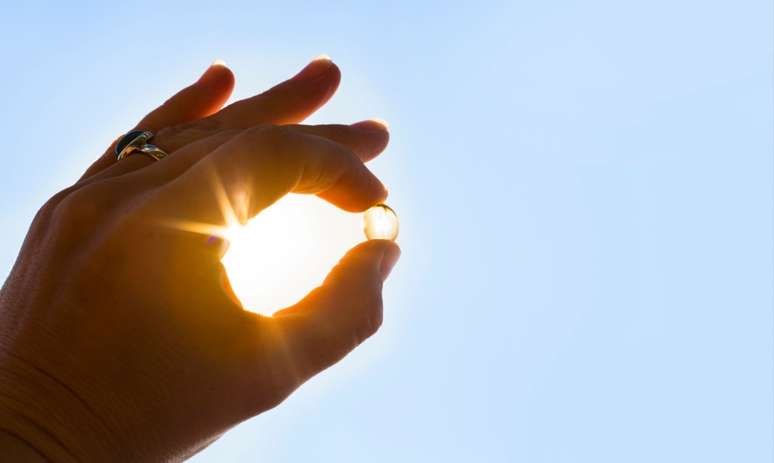Adequate levels of vitamin D protect the health of the entire body, which can be difficult to maintain during the winter.
Thermometers indicate low temperatures for the next few days in almost all of the country, especially in the southern and southeastern regions. In addition, in winter, there is naturally less sunlight, which requires greater attention to our health, as we need vitamin D to strengthen the immune system.
In addition, low temperatures and indoor climates contribute to the development of certain pathologies, such as respiratory diseases, joint and bone problems, and even depression.
Silas Soares, a specialist in integrative and functional health, explains that this is also due to a lack of vitamin D in the body. “In the winter, people tend to go out less, they expose themselves to less sun, they tend to stay indoors more. Direct exposure to the sun is the most effective way to produce nutrients in the skin,” he explains.
Importance of Vitamin D
“Vitamin D deficiency can be a concern because it has several functions in the body, such as helping to absorb and strengthen calcium and phosphate in foods, which are essential minerals for the health of patients’ muscles, bones and teeth,” the doctor points out.
Furthermore, it is worth emphasizing that the nutrient plays an essential role in the immune system, as it strengthens the defense system, helping to prevent chronic and autoimmune diseases.
In a recent study, researchers at Brigham and Women’s Hospital found that people who took vitamin D, or vitamin D and omega-3 fatty acids, had significantly lower rates of autoimmune diseases, such as rheumatoid arthritis, polymyalgia rheumatica, autoimmune thyroid disease, and psoriasis — compared to people who took a placebo.
According to the expert, vitamin D deficiency in the body can have subtle signs. Therefore, in many patients there is a longer delay in diagnosing its deficiency.
“Despite this, there are several signs that can indicate hair loss, such as constant colds and flu, bone and muscle pain, daily tiredness and hair loss. In addition, there is a greater susceptibility to the development of infections and difficulty in healing wounds,” Silas points out.
After all, is it necessary to supplement vitamin D?
For Silas, nutritional supplementation is recommended for everyone. “It’s not a luxury, but a necessity, because low levels of vitamin D will cause enormous harm to the patient,” he emphasizes. A low immune system, difficulty healing, a brain more prone to dementia, for example, are some of the problems resulting from nutrient deficiencies.
In this sense, the integrative health specialist highlights the main foods rich in vitamin D:
- Oily fish, such as salmon, tuna, and tilapia;
- Cheese, milk and dairy products;
- Egg yolk;
- Mushrooms;
- Liver.
It is important to note, however, that in many cases these foods are not sufficient to properly replace vitamin D in the body. This is because even those considered richest in terms of vitamin D still have a low quantity, requiring a higher level to maintain effective maintenance.
Therefore, the question arises of replacing the nutrient in other ways. “Supplementation can be done through tablets or intravenously. However, it is necessary to discuss with a doctor how this supplement can be added to the routine, the dosage and its frequency,” warns Silas.
Source: Terra
Ben Stock is a lifestyle journalist and author at Gossipify. He writes about topics such as health, wellness, travel, food and home decor. He provides practical advice and inspiration to improve well-being, keeps readers up to date with latest lifestyle news and trends, known for his engaging writing style, in-depth analysis and unique perspectives.


-1jyajqq3d5lya.jpg)



-1hrlykellx8ae.jpg)

